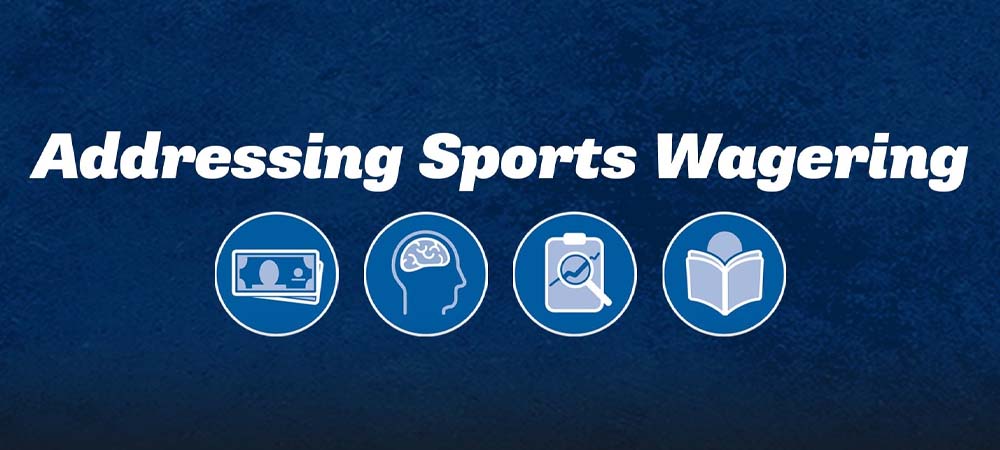- The NCAA’s April sports betting survey found results regarding the betting activities of 3,527 young adults ranging from 18-22 years old.
- 58% of that group has engaged in sports betting at least once.
- 56.3% of respondents heard advertisements encouraging engagement with a mobile app or website, with 38.3% of people somewhat more likely to bet because of it.
INDIANAPOLIS – The NCAA released the results of a sports betting survey on Wednesday that shows many 18–22-year-olds participate in sports betting despite age and location restrictions. The survey asked over 3,500 young adults and 1,702 students about their sports betting activity, gathering survey results for frequency, amount bet, success, and bet types.
A conclusive result of the NCAA’s sports wagering survey found that sports betting is pervasive across all geographic regions of the country, and betting behavior in terms of frequencies and amounts wagered across all regions is generally similar.
The survey was commissioned by new NCAA President Charlie Baker, who believes the survey results establish a baseline of sports betting activity by young adults.
“We needed a new baseline so we can better understand what student-athletes are experiencing on their campuses and among their peers so we can best help them deal with the potentially disruptive dynamic of legal sports betting,” Baker said at a press release. “Sports betting has increased interest in sports of all kinds, including college sports, which is great for our fans, but the NCAA and everyone from coaches to athletics department staff and college presidents must better understand what impact sports betting may have on student-athletes.”
Survey results show that 67% of students living on campus are bettors and bet at a higher frequency. Despite legal sports betting restrictions, 56% of survey respondents who were too young or reside in an illegal sports betting state engaged in betting activities.
Advertisement Betting Effect
The pervasiveness of sports betting advertising exists outside of states with legal sports betting, with 56.3% of respondents having seen or heard sports betting advertisements encouraging them to bet. While there isn’t an exact number of ad recall from respondents living in locations where sports betting is illegal, results claim that a majority of this group has seen advertising.
When the respondents were asked if the sports betting advertisements made them more or less likely to place a bet, these are the results.
Results of Sports Betting Advertising
- Much more likely 14.5%
- Somewhat more likely 38.3%
- Somewhat less likely 14.7%
- Much less likely 4.9%
- No effect 27.5%
Over half of respondents were inclined to bet after being exposed to sports betting advertisements. Results found that the Northeast has the largest proportion of bettors at 61%, while the West has the lowest at 54%.
Advertising Disclosure
In order to provide you with the best independent sports betting news and content LegalSportsBetting.com may receive a commission from partners when you make a purchase through a link on our site.
News tags: Charlie Baker | NCAA

Zach graduated from Florida State University with a degree in Writing, Editing, and Media. Zach is interested in the legalization aspect of sports betting and enjoys participating in DFS. He has a passion for sports writing and most enjoys writing about football and baseball both professional and collegiate.


 College Football Betting
College Football Betting Best Online Sports Betting
Best Online Sports Betting Best Legal NFL Betting
Best Legal NFL Betting States With Legal Sports Betting
States With Legal Sports Betting Sports Betting Events
Sports Betting Events




